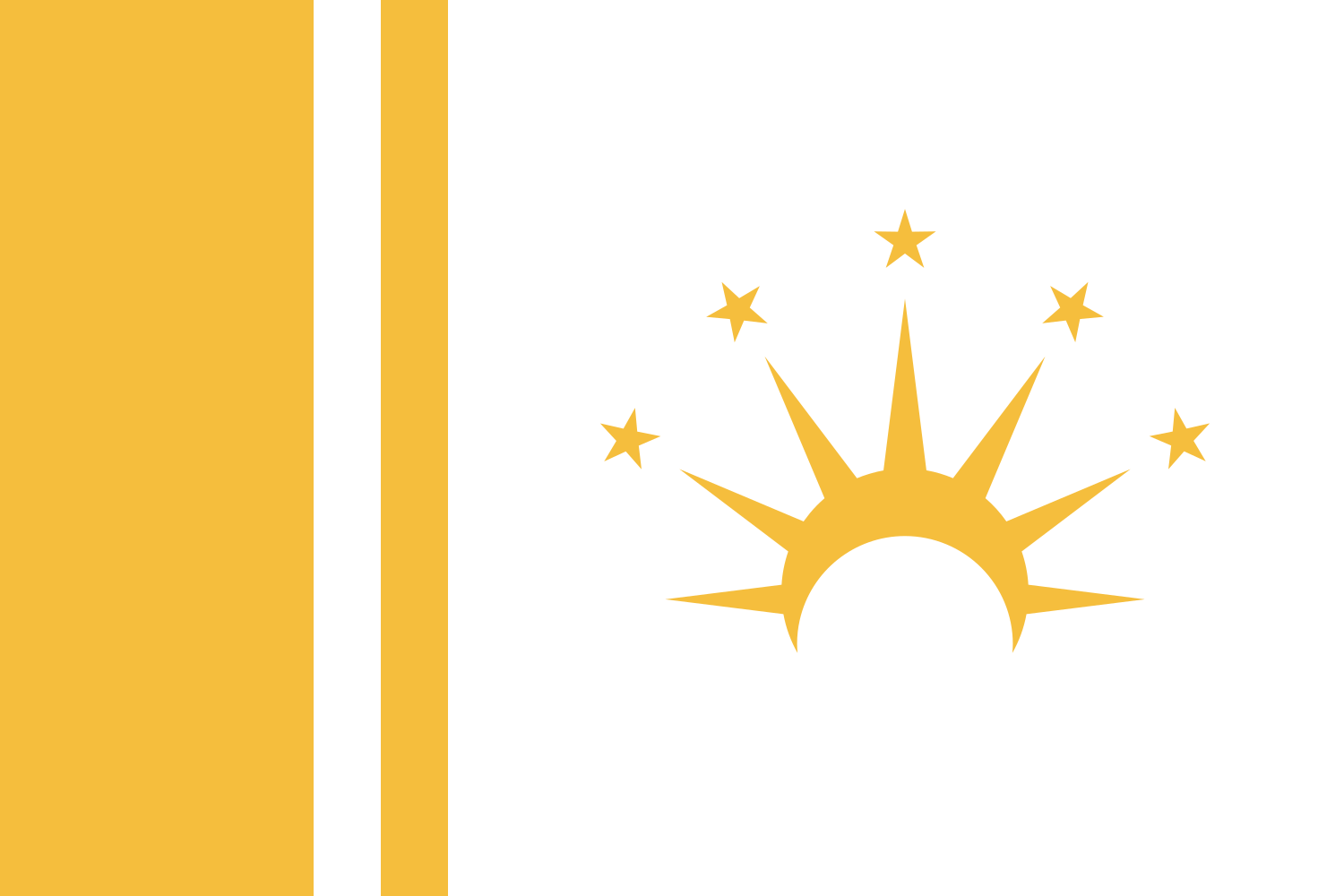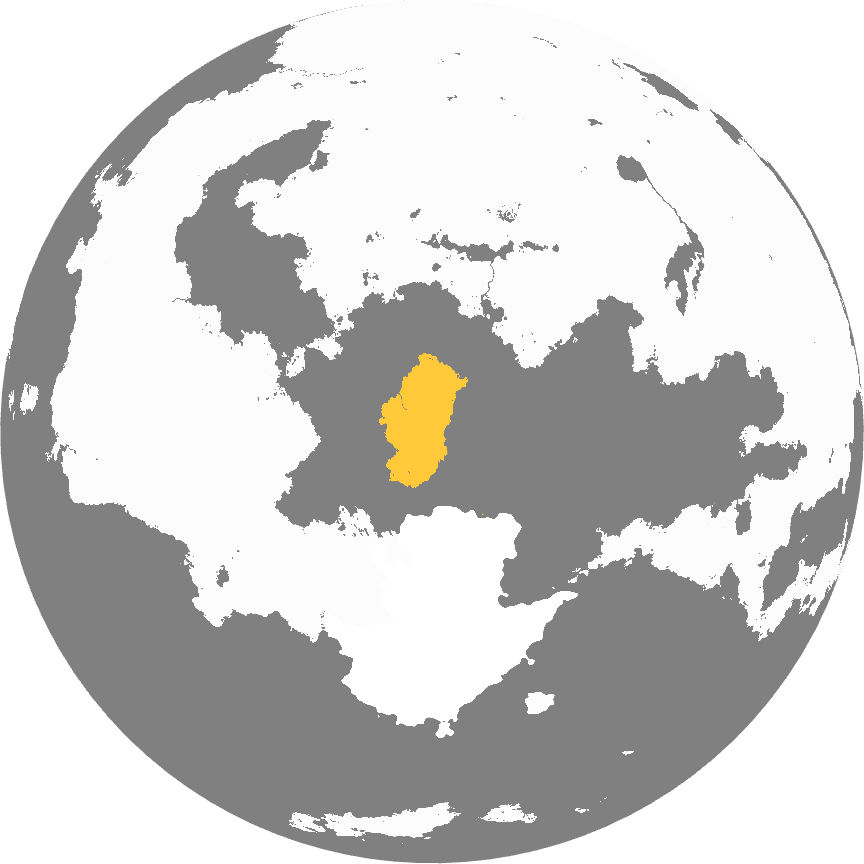Ikonia
|
Ikonia
|
|||||
|---|---|---|---|---|---|
 |
|||||
| Common Name | Ikonia | ||||
 |
|||||
| Demonym | Ikonic | ||||
| Official languages | Highkonic | ||||
| Currency | Beans | ||||
| Politics | |||||
| Capital | Nexus | ||||
| Government | Federal Republic | ||||
| Foundation | 23rd Century | ||||
| Preceded by | Spearka | ||||
| Demography | |||||
| Ethnicities | Ikonic 57.4% Spearkan 21.4% Iconian 10.4 Baskian 9.3% Other 1.5% |
||||
| Population | >1 | ||||
Not to be confused with Iconia.
Ikonia, officially the Ikonic Federation, is a country in Baskay-Caledon. Ikonia is distinguished by it's highly unusual and unique method of governance. Large areas of the island of Ikonia are dedicated to the sustainment of enormous arcological domes, known as cantons. These cantons contain populations of kerbals who are forced unwittingly to live as historical societies, which is then observed by the cognizant population to inform their political decision-making. Though the ethics of such a system are highly dubious, opposition to the Omnichronicratic program is small, as Ikonic census data reports high scores in the Kerbal Happiness Index (KHI) across all six states.
Etymology
Usually applied only to the Ikonic mainland, the name Ikonia comes from the old Spearkan Ikon, meaning a visual representation of an object, scene or abstraction. During the reformation of the nation, this was deemed as an appropriate sobriquet, as the cantons represented an idealised image of historical life. The adjective "Ikonic" is commonly used to refer to matters relating to the Ikonic Federation as a whole, and is used in law to refer to citizenship and nationality.
History
| “ | - To procure utmost sagacity, one must gather wisdom from every realm. And verily, the pearls of wisdom from bygone times must be treasured and preserved, lest they be lost to oblivion. | ” |
| —-Kerdavor Rancos, 97 AD | ||
Geography
Climate
The vast majority of Ikonia's territory is situated in Bascay-Caledon. Ikonic overseas territories extends to the two islands, Ulkam and Yarva, a region of the Antarctic, and Fish Island.
Mainland Ikonia has a temperate to frigid climate, being situated between 52°S and 69°S of latitude. Annual mean temperatures vary from 10 °C (50 °F) in the south to 16 °C (61 °F) in the north. The verdant island is largely covered in grasses and common varieties of pine, with only a small number of endemic plant species. The Eastern coast of Ikonia is battered by powerful prevailing winds throughout the year, which are utilized in wind power generation systems along across the country. Conditions vary sharply further inland. The inner regions along the north and north-east are dry and temperate, with annual mean temperatures of 14 °C (57 °F). The central mountain range has a peak elevation of over 6,500m. The foothills and plains to the south are dry and cool, sustaining large forests of pine.
States
Nexus
Nexus is both the foremost state of Ikonia and the capital city. It was the seat of power in old Spearka. Its austere and cosmopolitan nature meant it was the perfect setting for the calculated leadership of Ikonia. The basic leadership structure of Spearka has been maintained, and the capital state has retained it's original name.
Oltum
Originally known as Osten. It's great green plains and unspoiled natural environment made it the ideal location for a hunter-gatherer society. The Prehistoric canton represents a time before recorded history, where decision-making would be guided by survival instincts, communal living, and a close connection with nature. While this canton offers a different perspective on decision-making, the absence of complex societal structures and limited knowledge could impact the range of choices available.
Arcaros
Originally known as Verwelm. The tranquil beauty and mild lifestyle of the region made it the perfect home for philosophers and artists, who would rather discuss issues at length than actually act upon them. The Classical period was known for its advancements in philosophy, democracy, and the arts. Citizens of this canton might value rational thinking, debate, and civic engagement. They make decisions based on a deep understanding of ethical principles and political systems.
Valora
The Agricultural origins of Elohim gave way to the feudal and martial society of Valora, where the fertile pastures and plentiful shores are toiled. Rarely, a vessel of exploration ventures into the deep waters and across the horizon.The Medieval period was characterized by feudal systems, chivalry, and religious influence. The decision-making in this canton is influenced by hierarchical structures, moral codes, and religious doctrines. However, the limitations on education and scientific progress during this period affect the range of available knowledge.
Lumia
The bejeweled mountains and high altitude observatories of Baske gave rise to the illumination and optimism of Lumia. The Renaissance period witnessed a revival of learning, exploration, and artistic expression. Citizens of this canton might have a thirst for knowledge and a curiosity about the world. Decision-making could be influenced by intellectual inquiry, critical thinking, and a desire to advance scientific and cultural understanding. The revered inventor [ ] has constructed a number of primitive hydroelectric dams across Lumia, meaning the countryside hills ripple and shimmer with waterfalls and canvas.
Advan
Originally known as Zimi. The eastern coastline is hammered by strong prevailing winds. Swathes of wind turbine farms line the cliffs like giant, stalwart defenders. This provides a limitless source of energy for the innovative and economical society of Advan, allowing their technologies and ideas to flourish without a reliance on fossil fuels. The Industrial period brought about significant technological advancements, urbanization, and industrialization. Citizens in this canton might prioritize efficiency, innovation, and economic development in their decision-making. However, they might also face challenges related to environmental and social consequences of rapid industrial growth. Nuclear power plants in the old Nexus have led to a higher rate of mutation in Advan, ensuring that the population never advances.
Bastion Proving Grounds
Bastion was once the centre of the Federations military, focusing on the production of weapons and military technologies. Great shipyards lined the Baske and Elohim rivers, and the eastern region of the state was also home to three launchpads intended for launch of ground-to-space missiles or military spacecraft. During the reformation, Bastion was depopulated, and the entire state was reconsecrated to heavy industry, as well as test sites for both civil and military technologies. The region is officially referred to as the Bastion Proving Grounds, more commonly pronounced as 'Bazprog'. Virtually all of Ikonia's automobiles, military equipment, aircraft and weapons are tested at Bazprog.
Politics
Government
Each canton is managed and sustained by a segment of the real-world population known as the citizenship, who are split into five groups. These groups learn and seek guidance from the ways of their canton inhabitants. They subscribe to the same philosophies and aspire to think the same way. Each group votes on a representative named the ‘Bearer’, whose role is to speak on behalf of their canton. Each representative is selected from a pool of people who live a monastic and meditative life, attempting to quash all traces of their own individual personality in favor of promoting the influence of their canton. Bearers are elected through a monastic party system. Each monastery has their own interpretation of their canton’s values, and decides internally upon a candidate. The populace of each canton then votes on which monastic party should represent them. Canton elections are held every 3 years. Monastic elections are held whenever the monastery wishes.
National legislation is passed by the Great Council, which is made up of the Apex and the five Bearers of each canton. The Apex is the head of state, but does not have absolute control. They are given two votes. Bearers get one vote. The Apex is elected by the Bearers - the acting Apex does not get to vote in the general election. General Elections are held either every 5 years, or if the other Bearers reach a unanimous agreement that the current Apex must retire.

